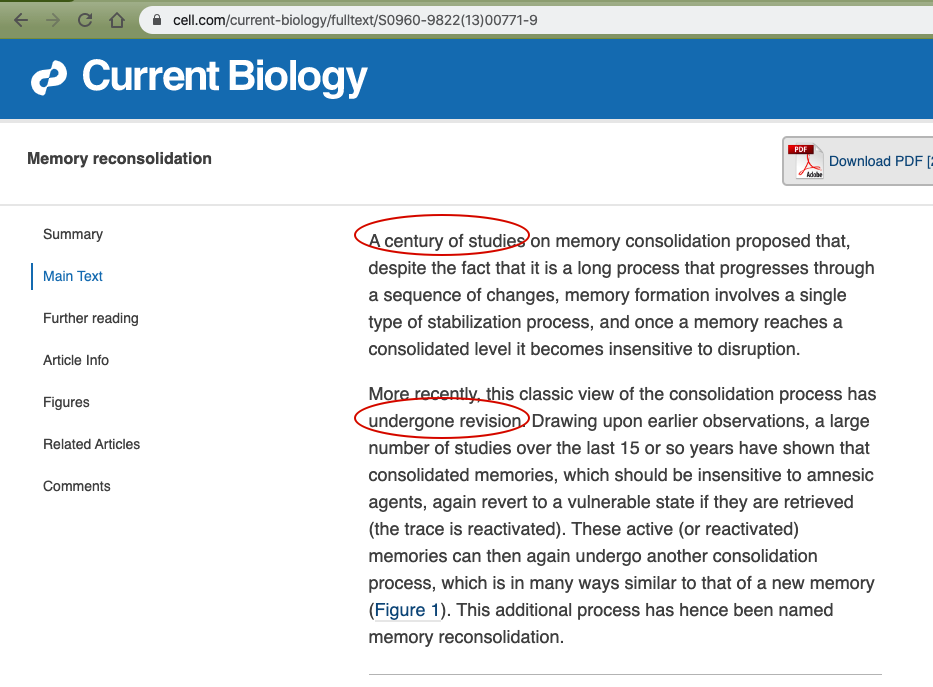In 2009 a landmark study was done that shattered a 100 year belief about memory. The striking evidence caused the biology books about memory to be rewritten. And that is similar to what memories are like.
For decades upon decades scientists and psychologists believed long term memories were permanent. Looks like it's going to be years of therapy for that phobia!
Ka-ching!
But this misunderstanding of memory has lasted long enough because with technology advances, the science has shown that memories aren't permanently stored like a book or a photo album, instead, memories, even long term traumatic memories, have the ability to be rewritten or updated. Sometimes this can be done in fifteen minutes. No wonder this discovery is only being researched for big pharma and why the therapists keep it a secret!
This updating process is known as memory reconsolidation and it is paving the way for new solutions for treating or curing PTSD.
One of the neuroscientists in the landmark study about memory reconsolidation is Karim Nader, an Associate Professor at McGill University in Montreal who also happened to have won an award for his work on memory research. He gave an interview about memory manipulation, the theory of reconsolidation, and describes how it might be used to treat anxiety disorders and post traumatic stress disorder, drug addiction, obsessive compulsive disorder and more.
He also speaks about how it works by blocking the restorage process of the traumatic memory so that conscious awareness of it remains but the emotional meaning is altered.
To learn more, please listen to neuroscientist Karim Nadir on memory manipulation at his office or his TEDx talk!




























